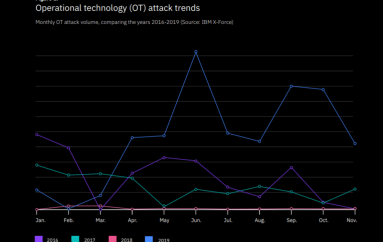
Sextortion Scam Threatens to Infect Victims with #COVID19
Online extortionists are now threatening email victims with COVID-19 infection if they don’t pay thousands of dollars, marking yet another evolution in their scam tactics.
Sophos reported the sextortion scam, which follows a similar pattern to others of this type. The attackers divulge previously breached information on the victim, in this case one of their passwords, to lend credence to their claims that they have “every dirty little secret about your life.”
“T? s??rt with, I ???w all of y?ur passwords. I ?m aw?re of your where?b?u?s, what y?u ea?, w?th wh?m you t?lk, every li??le ?hing y?u do in ? day,” the email continues.
However, instead of directly threatening to release a compromising webcam video of the victim watching adult content, the scammers take another tack in this attack.
“What ?m ? c?pable ?f d???g? ?f I w??t, I c?uld e?en infect y?ur wh?le f?mily with ?he C?ron?Virus, re?e?l all of y?ur secrets. There ?re c?un?less ?hi?gs I c?n d?,” they write.
Interestingly, they have used Greek characters in place of similar-looking English letters such as A, N, O, T and V to disguise the words from the text-matching techniques used by email security filters.
The use of COVID-19 in this attack is just one of many examples of cyber-criminals using widespread anxiety over the pandemic to further their own agendas.
Most common are phishing attempts designed to trick users into clicking on a malicious link or opening a malware-laden attachment with the promise of finding out more info on the virus.
Recipients of this latest sextortion scam are required to pay $4000 in Bitcoin within 24 hours.
“? w?ll i?fect e?ery member ?f your family with ?he C?ron?V?rus. No matter how smart y?u ?re, belie?e me, ?f ? wa?? to ?ffect, ? ca?,” the note concludes. “? will also g? ?he?d a?d re?e?l y?ur secre?s. ? will com?letely rui? y?ur l?fe.”
This post Sextortion Scam Threatens to Infect Victims with #COVID19 originally appeared on InfoSecurity Magazine.





